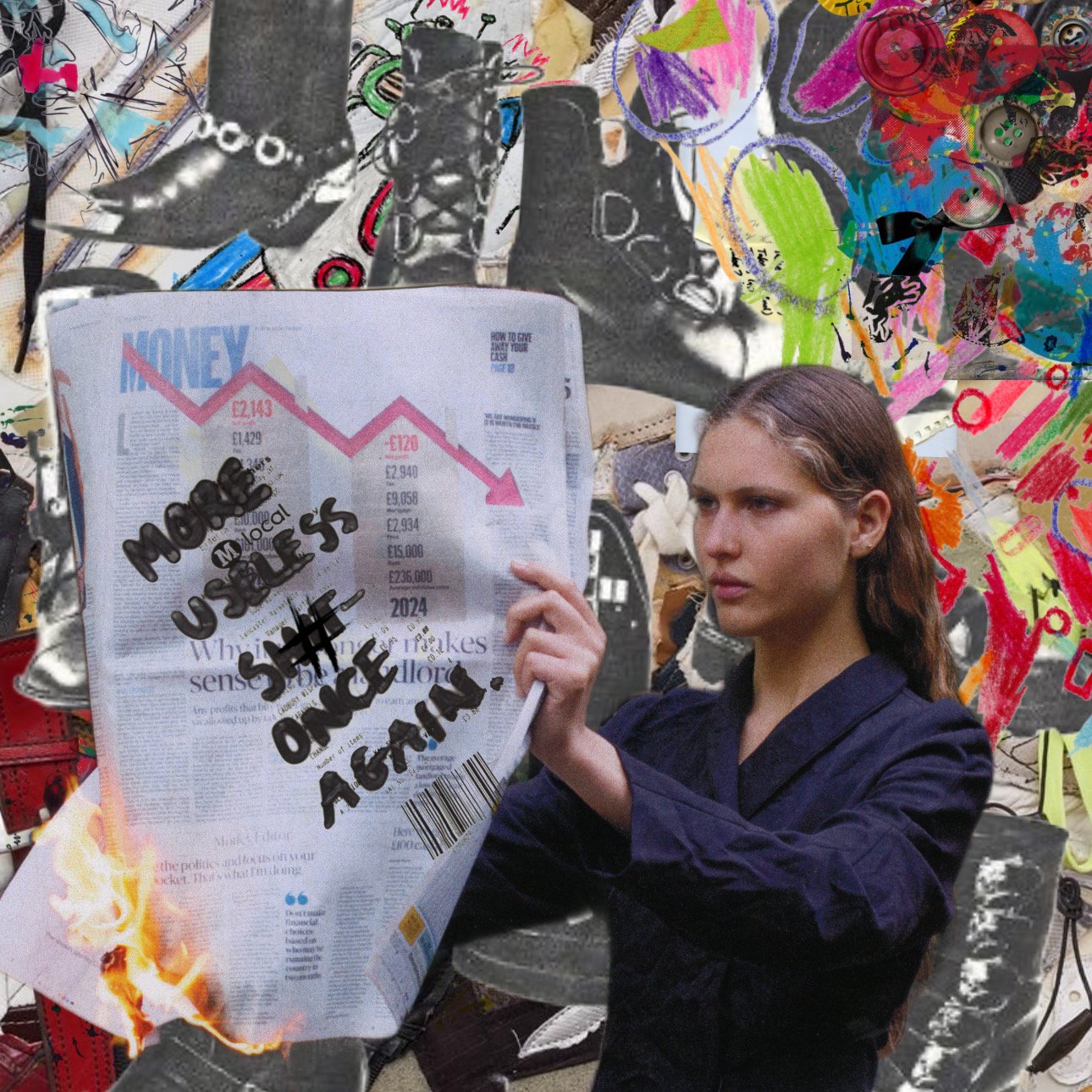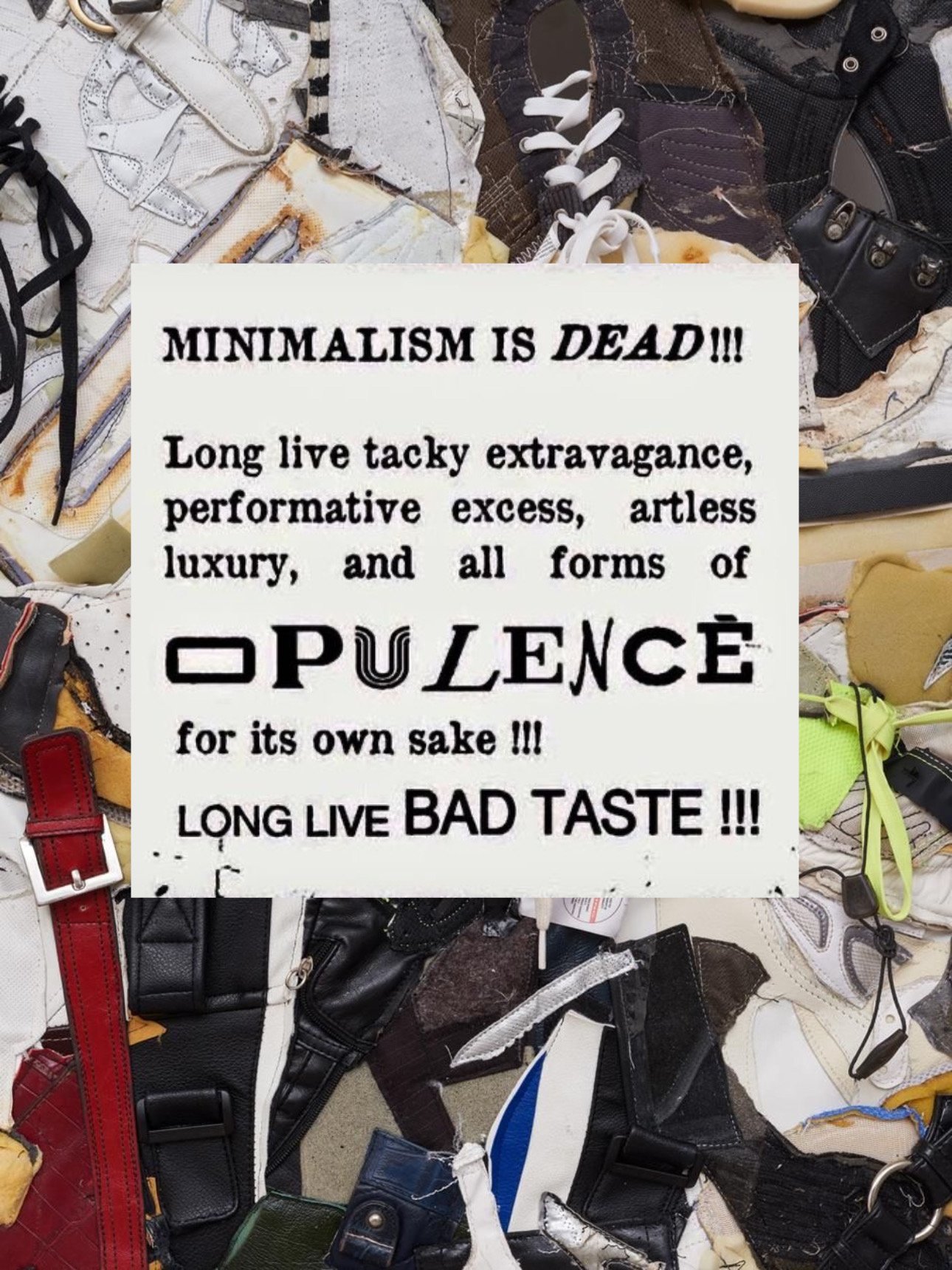Has Fashion Lost it Soul to Trends?
With the world moving at a rapid pace, the fleeting nature of fashion trends is truly remarkable. In particular, the rise of fast fashion has made it easier for consumers to access trendy items at a relatively low price. The creativity and uniqueness that fashion once embraced is being diluted by the never ending stream of new trends, resulting in environmental issues.
Image Created by Devon KittFashion has always provided a medium for personal expression, allowing fashion enthusiasts to identify themselves through clothing. However, over the years, fashion has lost its uniqueness due to mass production and hoards of consumers. Now, more and more people share the same set of styles, whether on the streets or on various social media platforms. Influencers continue to post meticulously crafted content showcasing similar looks, which, over time, has built a repetitive visual culture.
Many emerging designers suffer greatly from this. The fast fashion business model enforces a constant workflow, demanding impractical amounts of clothing be produced. Alongside this pressure, many designers are expected to sacrifice quality for quantity. As a result, there is little space for innovation from these designers because they are forced to sacrifice designing unique, timeless pieces and follow the shifting trends rather than setting these creations for all of us to follow.
Image Created by Devon KittFast fashion has an appalling impact on the environment. It accounts for around 10% of carbon emissions in the world and greatly contributes to the climate change crisis. Importantly, The fashion industry uses more water than any other industry, after agriculture. It takes 700 gallons of water for a cotton shirt and 2,000 gallons for a pair of jeans.
Apart from the environmental issues, fast fashion also poses serious ethical dilemmas. Many brands outsource their production to low-cost countries where the masses are underpaid and work in unsafe environments. This not only sustains social injustices but also places no accountability on fashion brands that do not have to deal with the reality of third party factories.
Image Source from Pinterest: @Shynney With the existence of social media platforms like Tik Tok and Instagram, the fast fashion cycle has been worsened due to rapid trend turnover. Microtrends have a short life span of only a few weeks, which encourages frequent purchases. This overconsumption culture not only has damaging effects for the environment, but also drastically decreases individuality by forcing people to follow trends.
Image Source from Pinterest: @David Sierra In conclusion, the fundamentals of individuality and self-expression have been seriously weakened by the explosive growth of fast fashion and the fixation on fleeting trends. Mass manufacturing and overconsumption have turned what was once a space for individuality and creativity into an uncontrollable force devoid of originality. Furthermore, as the fast fashion business continues to hurt the environment and its workers. Importantly, we should embrace our uniqueness and choose to express ourselves honestly, free from the urge to fit in rather than putting our conformability to be palatable for others first.
Work cited Fast Fashion: Its Detrimental Effect on the EnvironmentMaiti: https://earth.org/fast-fashions-detrimental-effect-on-the-environment/Fast Fashion: https://en.wikipedia.org/wiki/Fast_fashion



